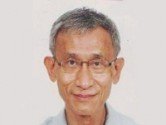The problem with Singapore's high value added investment philosophy
By Yuen Chung KwongSingapore has always emphasized high value added economic activities when soliciting overseas investments and devising development programmes. In fact I myself was recruited to NUS because of one such push started in 1980 with the establishment of National Computer Board, to promote the widespread use of IT in business and in society generally.
The current high level of technology penetration in all aspects of the life of Singaporeans, bears witness to the success of this programme.
While there are obvious benefits in emphasizing economic activities of high impact and monetary returns, there are wider issues that need to be considered.
First, high value added activities usually require sophisticated and expensive technology and large investment funding; hence, local small-and-medium-sized businesses would find it difficult to initiate them, and the policy has to aim at getting large multinational and local corporations as investors.
Second, the skill set such activities require of employees is high, and at least at the initial stage, foreign personnel with relevant experiences need to be imported. With a well developed education system, the deficiency may be remedied over time, but setting up the necessary educational programmes is a fairly extended process too - among other reasons, the educators and development team leaders need to imported in the early stages to impart their knowledge.
Third, the rather sophisticated products and services arising from these high value added activities usually have only a small market locally, and companies involved in these need to depend mainly on foreign customers; the components that go into such products often need to be imported too.
If a new programme is so sophisticated and advanced that investment sources, personnel, material and output all involve overseas rather than local content, to what extent are local people able to benefit from it? Even when its long term benefit is beyond question, the situation may not look obvious to people for quite a few years at least.
The important point is that, while high value added activities are being pursued, alternative investments with more obvious local benefits should not be neglected.
To take an example, in Hongkong there are a large number of 14 passenger minibuses
https://sinazen.com/yahoo_site_admin/assets/images/ce6b.17195155_std.jpg
that fulfill a very useful transport role: they run along approved routes like large buses but more conveniently for the passenger, as they can zip through the streets more quickly, picking up and dropping passengers at points close to where they want to board and alight like taxis, but at a much lower cost.
Such minibus services can fulfil an equally useful transport role here, shuttling residents between HDB blocks and MRT stations, as they can pick up and drop passengers right at the void deck of each building.
Given Singapore's hot and humid weather and frequent thunderstorms, such a service would be obviously superior to (though of course somewhat more expensive than) the normal bus services. The two established bus companies might actually welcome such competition, since currently their vehicles are often overloaded and complaints are frequent among bloggers and social websites.
The investments required to introduce such services are fairly modest, and the large number of licensed taxi drivers can be readily retrained to drive minibuses and become entrepreneurs operating their own vehicles.
I imagine LTA should have no difficulty identifying suitable routes and issuing licenses to operate these.
So why have such services not been introduced in Singapore? Perhaps because policy makers are busy finding and implementing high value added investment programmes. It would certainly require some thinking outside to box to cast their eyes more widely.
------------------------
bio: Yuen Chung Kwong completed his PhD in Computer Science at Sydney University in 1972 and worked at Australian National University, University of Tasmania and University of Hong Kong, before joining the Computer Science Department of National University of Singapore in 1983. He was department head from 1985 to 1993, and retired as Professor in 2007.

























 Advertise
Advertise









